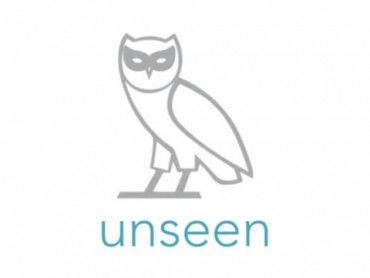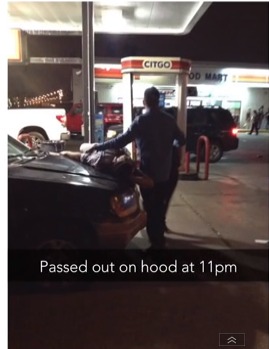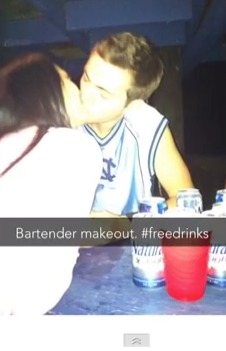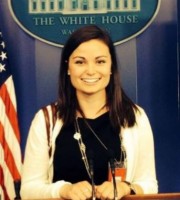
Moderation system is running ’24/7,’ takes down ‘nipple’ pics
Anonymous communication is trending as the common theme among new apps geared toward college students – and common enemy for their administrators and campus leaders.
Unseen, a five-month-old app that the Daily Pennsylvanian describes as “a hybrid of Snapchat and Yik Yak,” lets students communicate with each other on campus by sharing photos with captions – anonymously.
“A picture really is worth a thousand words,” Michael Schramm, Unseen co-founder and CEO, said in a phone interview with The College Fix.
The app’s popularity has grown so fast since its July debut at Texas A&M University, Schramm’s alma mater, that the company created a wait list for new schools to be added.
When users download the Unseen app they enter their university’s name. If that school’s feed has already been approved, users get sent to that feed, and if not, users are told how far back on the wait list the school is.
As of Dec. 9, about 200 schools have their own feed, with more than a thousand on the wait list.
The thought behind Unseen is “what if you could introduce yourself while remaining anonymous?” Schramm told The Fix. “The anonymous world has always existed but never in a way that was truly beneficial,” as Unseen has done, he added.
Student can make more meaningful connections on Unseen than through other social media platforms, according to Schramm. The app just launched an anonymous peer-to-peer function, letting users anonymously “direct message” one another.
Facebook and Twitter encourage users to “share only the politically correct aspects of our life,” whereas Unseen is intended to “unshackle our generation” from the “fear of retribution, fallout or our reputation,” Schramm earlier told the Daily Pennsylvanian.
 As with Yik Yak, Unseen has provoked a negative reaction on campuses where it’s live because of the type of content that dominates it.
As with Yik Yak, Unseen has provoked a negative reaction on campuses where it’s live because of the type of content that dominates it.
A school’s feed might feature everyday successes in college life, alongside photos of girls in sexual poses, guys looking for their next hookup, illicit drugs and racist comments.
Although Schramm told The Fix that no school has directly approached Unseen to discuss the app’s impact on campus, some schools are trying to mitigate what they see as negative consequences.
University of Texas-San Antonio student leaders took to Twitter with a “delete the app” campaign in early November.
“Many of our fraternity and sorority life leaders believe that Unseen is a destructive app that can be detrimental to university communities, especially fraternities and sororities,” Margo Perez, the university’s Panhellenic Council president, said in an email to The Fix.
 “By allowing anonymous picture sharing and anonymous, un-moderated comments, our student leaders saw the app used to harass and bully groups and individuals,” Perez said. “That concerned them.”
“By allowing anonymous picture sharing and anonymous, un-moderated comments, our student leaders saw the app used to harass and bully groups and individuals,” Perez said. “That concerned them.”
Students began noticing some comments of harassment and bullying, both against individuals and the fraternities and sororities as a whole.
The Panhellenic Council encouraged students to delete Unseen and fight cyberbullying, using thehashtag #UTSAActualSororityMove.
About 36 hours after the hashtag’s creation, it was used 270 times and seen by 60,000 people in three countries, according to Perez. (The council tweeted Nov. 12 that the hashtag campaign reached approximately 56,000 people.)
Oklahoma State University officials watched with dropped jaws as the app became a space for racism in late October.
When someone posted a photo of a group of African-American girls dancing at a fundraising event, users left comments such as “Call the zoo, the gorillas got out again,” USA Today College reported.
But what happened next, Schramm said, is exactly what he he had intended for the app when it launched: He said the president of the university used Unseen to promote diversity in the midst of racial tension. (Because Unseen posts aren’t archived for long periods, The Fix could not confirm that the president used Unseen.)
Unseen published an open letter to Oklahoma State after the incident, promising a new system of moderation and updates, though the company hasn’t explained how it works.
“We have teams dedicated 24/7 to both reviewing and moderating content that is created or flagged by users,” Schramm said when asked how the moderation system works.
(Schramm told TechCrunch in August that Unseen “quietly censors” photos that violate its guidelines, such as its “no nipples” rule.)
The company is “still in discussions with” Oklahoma State, and has participated in an “open dialogue” with the administration and student groups “to better understand the problem and learn how we can improve,” Schramm told The Fix.
Despite the adversity Unseen’s founders have to overcome, they see the app as a tool to improve the campus experience.
“Regardless of race, religion, opinion, beliefs, we want to be an open platform that is truly open and truly secure in a way that can unite people and create discussion that you may not have otherwise seen before,” Schramm said.
College Fix reporter Courtney Such is a student at Furman University.
Like The College Fix on Facebook / Follow us on Twitter
IMAGE: Unseen screenshots/YouTube, UTSA Panhellenic Council/Twitter






Please join the conversation about our stories on Facebook, Twitter, Instagram, Reddit, MeWe, Rumble, Gab, Minds and Gettr.